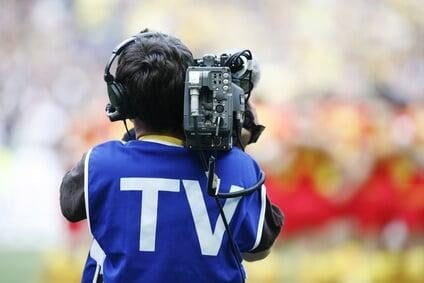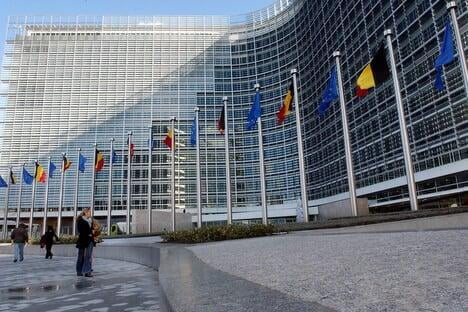Audiovisual rights for professional football competitions are allocated by the Professional Football League (LFP) which centralizes their marketing on behalf of professional football clubs (this allocation of rights was also recently at the heart of a dispute between the LFP and the Canal Plus Group before the Competition Authority). What are the legal foundations of this centralized system, at the heart of a necessary balance between the principles of free competition, solidarity and general interest?
Ownership and marketing of audiovisual exploitation rights for competitions organized by the LFP
According to the Sports Code
The relations between the FFF, the LFP and the professional clubs concerning the audiovisual exploitation rights of the competitions organized by the LFP are governed by the provisions of Articles L. 333-1 et seq. and R. 333-1 et seq. of the Sports Code, setting the conditions for the marketing by the LFP of these rights.
Article L. 333-1 of the Sports Code provides:
According to the regulations of the FFF and the LFP
The regulations of the FFF and the LFP complete the legal system.
We can thus cite Article 26 of the Agreement between the FFF and the LFP, which provides that the audiovisual exploitation rights ceded by the FFF to sports companies are marketed exclusively by the LFP:
«All financial provisions as well as those setting the framework for the relations of the FFF, the LFP and professional clubs with audiovisual broadcasters are the subject of a financial memorandum of understanding annexed to this agreement.
The terms of this protocol, previously submitted to the General Assembly of the LFP, must be approved by the General Assembly of the FFF. (...)».
Article 4 of the Financial Protocol between the FFF and the LFP also specifies:
«(...) No club may enter into agreements with a television channel for the live or delayed retransmission of friendly matches or tournaments without the express authorization of the FFF and the LFP.
The agreements concluded by the LFP within the framework of the marketing of audiovisual exploitation rights, in accordance with the provisions of article R333-2 paragraph 1 of the Sports Code, are signed by the LFP.
These conventions are imperative to all the clubs concerned. In the event of non-compliance with the resulting obligations, the following sporting and financial sanctions may be imposed by the competent Commissions:
- first sanction:
o against the President of the club: suspension of 3 to 6 months;
o against the club: fine of € 32 to € 000 and withdrawal of three points in the championship classification.
- in the event of a recurrence:
o against the President of the club: striking off;
o against the club: elimination of the benefit of distributions from television contracts and sports demotion».
Centralization of TV rights: a balance recommended by the institutions of the European Union and the Competition Authority between infringements of the principle of free competition and the principle of solidarity
An infringement of the principle of free competition of European Union law
However, the Commission considers that these restrictive rules can be exempted in the specific circumstances of the case. It is indeed possible to justify a restriction of competition when it is balanced with the resulting advantages, in accordance with Article 101§3 of the TFEU :
« 3. However, the provisions of paragraph 1 may be declared inapplicable:
- any agreement or category of agreements between companies,
- to any decision or category of decisions of business associations and
- to any concerted practice or category of concerted practice
which contribute to improving the production or distribution of products or to promoting technical or economic progress, while reserving for users a fair share of the resulting profit, and without:
(a) impose restrictions on the undertakings concerned which are not indispensable to the attainment of those objectives,
b) give companies the possibility, for a substantial part of the products in question, of eliminating competition».
An infringement justified by the principle of solidarity
Seized for opinion within the framework of the development of the texts applicable in France to the marketing of the rights of audio-visual exploitation of the sports competitions, the Competition Council, now the Competition Authority, underlined in a notice 04-A-09 which «the centralized marketing of competition rights has an economic justification, such as the reduction of transaction costs, the overall consistency of the product, a better valuation of the whole compared with a club-by-club marketing, and a guarantee of resources for the set of clubs».
Likewise, in the White paper on sport, the European Commission considers that centralized sales can constitute an effective means of selling TV rights as well as to guarantee the integrity of competitions, to preserve their nature and interest. The Commission states in particular that 'lhe centralized sale of rights can be important for the redistribution of income and can therefore be an instrument at the service of greater solidarity in sport».
The European Parliament, in its Resolution of 8 May 2008 on the White Paper on Sport recommends that Member States and sports federations to «introduce, where this is not yet the case, the centralized sale of media rights ”, on the grounds that it constitutes "An instrument at the service of greater solidarity in sport».
Mechanisms for the redistribution of revenue from the sale of audiovisual rights in order to guarantee the general interest
While article L. 333-3 of the Sports Code provides for a distribution between the federation, the league and the sports companies (A), article 302 bis ZE of the General Tax Code and the Statutes of the FFF and the LFP also provide for a redistribution of part of the operating rights to the amateur sector (B).
Redistribution of revenue from the sale of audiovisual rights between the league, the federation and the clubs
Article L. 333-3 of the Sports Code has:
«In order to guarantee the general interest and the principles of unity and solidarity between activities of a professional nature and activities of an amateur nature, the products of the marketing by the league of the rights of exploitation of the companies are distributed between the federation, the league and the societies.[...]
The products due to the companies are redistributed to them according to a principle of mutualisation, taking into account criteria set by the league and based in particular on the solidarity existing between the companies, as well as on their sporting performances and their notoriety.».
There are thus three non-restrictive legal criteria on which the distribution of audiovisual rights is based: solidarity, sports performances and club reputation. The notoriety is assessed according to the broadcast of the matches by the channels holding the rights.
The Statutes of the LFP provide for the distribution of audiovisual rights between Ligue 1 and Ligue 2 in the General Assembly (Art. 12 of the Statutes of the LFP) but also between each club within their respective league, via the League's Board of Directors on the proposal of the Ligue 1 and Ligue 2 Colleges (Art. 22 of the Statutes of the LFP). For the 2020-2021 season, the Board of Directors has delegated to the Bureau of the LFP its power to adopt the guide for the distribution of audiovisual rights Ligue 1 and Ligue 2.
According toSenate Comparative Legislation Study No. 275 - Audiovisual Football Rights: Transfer and Distribution, the methods of distributing these rights are different according to the leagues: the methods of distributing these rights are different according to the leagues:
«- for Ligue 1, this distribution is made according to the five criteria: fixed part, club license, sporting classification for the current season, sporting classification for the past five seasons, notoriety classification for the past five seasons;
- for Ligue 2, the sports classification over the last five seasons is not taken into account, the notoriety is taken into account only for the current season and the training (which does not appear in the three criteria provided for by law) is nevertheless taken into account».
Redistribution of part of the revenue from the sale of audiovisual rights to amateur sport
Redistribution via the National Sports Agency to all sports disciplines
Article 302 bis ZE of the General Tax Code provides for a contribution of 5% of the sums excluding VAT collected by the league in respect of the rights ceded by it.
This tax, now allocated to the National Sports Agency, was created to promote solidarity with amateur sport (Art. L. 411-2 of the Sports Code).
A redistribution via the LFP to amateur football
The FFF / LFP 2021/2022 financial memorandum of understanding provides that in accordance with the Statutes of the FFF (Art 32.8) and the LFP (Art 39), the LFP is committed "to pay each season to the FFF a single financial contribution in favor of amateur football which will be calculated at 2,5% of the base consisting of audiovisual exploitation rights negotiated by the LFP (net of the tax on the transfer of broadcasting rights provided for in article 302 bis ZE of the General Tax Code) and LFP revenues on sports betting. This contribution may not be less than a guaranteed minimum set at € 14.».
On the same theme, see the following articles:
[12.10.20214]









